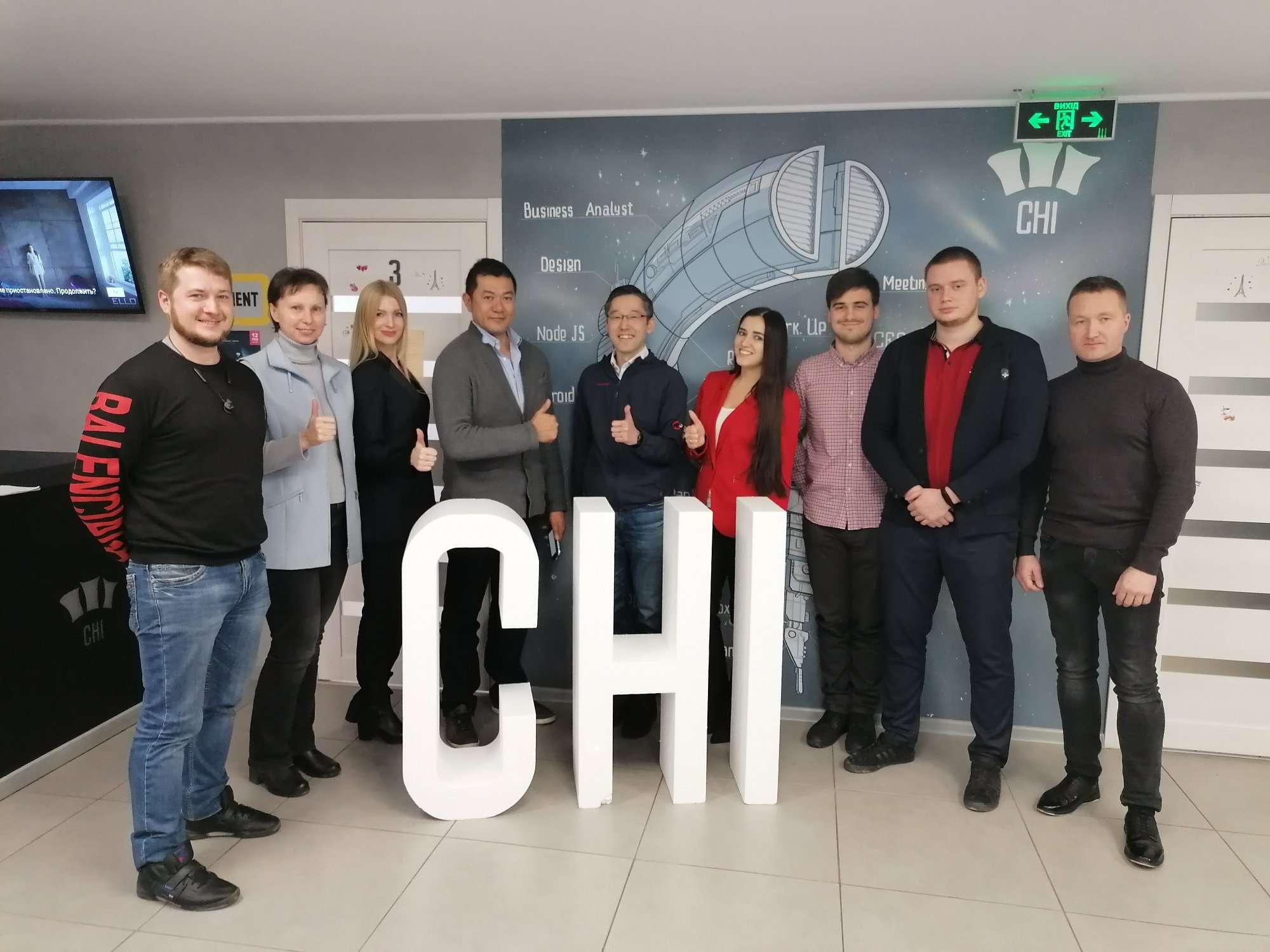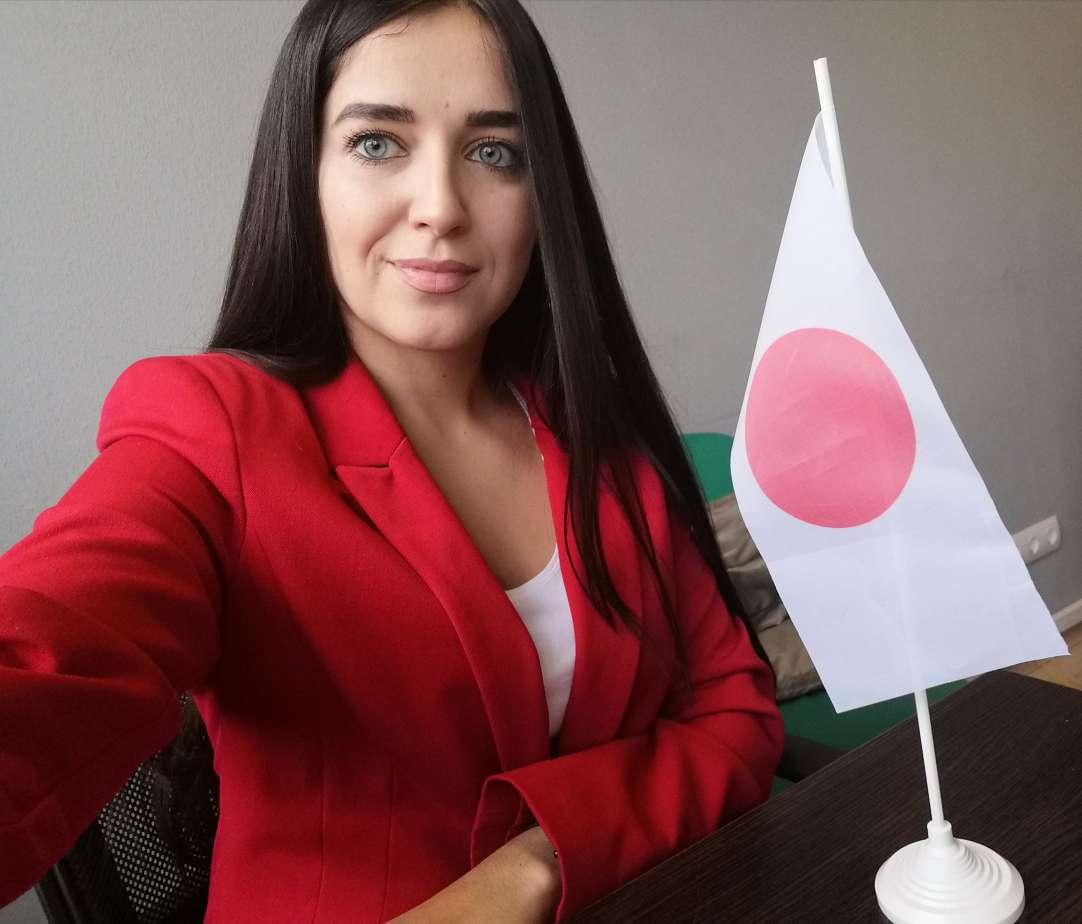Ukrainian IT companies have been exploring foreign markets for a long time. Recently, in addition to traditional Europe and America, our developers are beginning to actively cooperate with Saudi Arabia and Asian countries like Japan and Singapore.
Katerina Gurba, COO of the CHI Software Development Center, told why her company became interested in the Japanese market, how it found its first client there, and why the team needed a Japanese native.
CHI Software started in 2006 as a small web studio. It all started with ten enthusiasts and a great desire to create something exciting. At that time, we only dealt with PHP, HTML, and CSS design projects. We worked for Ukraine and CIS markets. Of course, we had plans to enter global markets initially. But we understood that we need to gain experience and expand our capabilities in the technological solutions field for this.

Within two years, our experience became weighty and voluminous. We have turned into a development center that deals with more complicated technologies from a small web studio. Our developers were fluent in all known programming languages, and we successfully used their skills in our projects.
When we realized that we were ready to enter global markets, we began to travel to technology and business conferences in different countries. We were looking for clients there, building win-win relationships with them. As a result, in 2015, we entered Europe, the USA, and Israel markets.
Entering the Japanese market felt like flying to Mars
CHI Software is continually looking for new business channels. We have always wanted to explore complicated and distant markets with a great collaboration potential, but practically unknown to our compatriots. One of these markets is Japan.
When I shared the idea of entering the Japanese market with our leadership, it didn’t accept it unconditionally. It sounded like an offer to fly to Mars, an incredible and difficult undertaking. But for me, it was a personal challenge.
I started to test the waters and found a person who knows Japanese. He helped me research the market. It was essential to understand what the Japanese are generally interested in and how to make them look “in our direction.”

During the market research, many unusual things emerged. We found out that, in Japan, it is not customary to change job places. It is considered strange if a person has changed, for example, three companies in his entire life. The Japanese won’t go to another employer if they are offered a higher salary or better conditions. Therefore, for local companies, the only way to get new staff is to hire senior students and university graduates.
In Japan, employers take a person without experience and teach them according to current needs. Only after two or three years, it becomes clear whether they were lucky with this student or not. Even if the employers were unlucky, they wouldn’t fire those employees. They can even be demoted to the janitor position but will still work in this company for 10, 20, and maybe 30 years.
Therefore, when a Japanese company develops its product, it faces a lack of experienced specialists sooner or later. And you simply can’t find them inside the country. Previously, the Japanese hired such specialists in India and Vietnam, and more recently, they began to explore alternative markets. Ukraine is just that one.
Find Japanese representative
So, we’ve started to visit technology exhibitions in Japan. The first one didn’t give a tangible result but showed how the Japanese market works. We’ve realized that no locals will do business with us as long as there is no Japanese in our team. It is a feature of mentality. Your Japanese business connector must say: “I worked with those guys, everything is fine,” or “I represent them, you can collaborate with them.” Only then will the Japanese company begin to trust you. If you don’t have a local representative on your team, you have almost zero chances of getting a client from that country.
We started looking for a Japanese person to join the team and realized that it was not easy. There are few Japanese in Ukraine, and they mostly not in the IT-sphere. The Japanese who live in Japan already work somewhere, and they are not looking for a second job (as is customary in the country). Moreover, they often do not consider foreign companies’ proposals, and their salaries are incomparably higher than ours.
Our first client from Japan appeared in 2019, a year after we started to master this direction. It happened due to the ties of the Ukrainian IT-Association with the Japanese IT-Association. Later, a Japanese native joined our team, and it became easier to look for clients.
Since 2019, we have completed 15 projects for the Japanese market and have collaborated with more than ten clients. The Japanese are mostly interested in Machine Learning, Artificial Intelligence, Computer Vision, robotics, and Big Data.
The three-cup tradition and plans for the year
There is an abyss between our and the Japanese mentality. For instance, the Japanese make all decisions collectively — unlike us. If you schedule a business meeting with them, a whole delegate group will come to it. For the Japanese, if one person speaks on behalf of the entire company at a technology conference, it is considered a lightweight attitude. They won’t even look towards such a partner.
In 2019, no potential client from Japan would agree to work without a personal meeting. They have a tradition of three cups of tea. It means that future partners meet three times before signing the contract. Moreover, at least one of these meetings must take place in Japan. Since the COVID-19 pandemic began and all the discussions turned online, the Japanese have slightly changed their attitude to partnership building. Now they agree to cooperate without numerous meetings too.
The Japanese are people of their word. If they said they would work with you, you could be sure they will. If cooperation is successful, they will stay with you forever. The Japanese will not look for someone who will work for less money or monitor the market for more perspective proposals.

The Japanese plan ahead. If local business people decide to use one company’s services in 2021, they do not turn to another — for any reason. You can only hope to cooperate next financial year.
While working with the Japanese, you need to clarify all the details, even the smallest ones. For instance, when discussing the contract or project requirements, your partner may understand your phrase differently. Therefore, it is better to discuss each crucial point several times and in several verbal variations.
How do we receive abroad payments?
The Japanese are eager to cooperate with companies within the country, for instance, American and European ones. As a company with an office in Europe, we offered Japanese clients convenient ways to send payments to our European account. We use the Payoneer platform and bank payments — at the client’s choice. CHI Software issues invoices to the Japanese partners in dollar equivalent. It is convenient for both them and us. Payoneer offered us the ability to accept Japanese yen payments, but there is no necessity in this service so far.
We had opened a corporate account with Payoneer in 2019, even before working with Japan actively. At that moment, we faced the problem of massive payments to contractors. We had to send them manually, but Payoneer has offered its service for mass payments automatically sending. Payoneer Mass Payout helped us save time on manual transactions and decrease money loss on bank charges.
For us, the advantages of working with Payoneer are the payments speed, minimal commissions, ease of use, automatic funds crediting, and a client development manager who answers all our questions quickly and efficiently.
CHI Software has many plans for 2021. We are going to open a new office in Ukraine, expand the team, create many products in Artificial Intelligence and Machine Learning, and launch several new projects in these areas. Hope, we will develop new markets in Asia, not being limited to Japan only.



